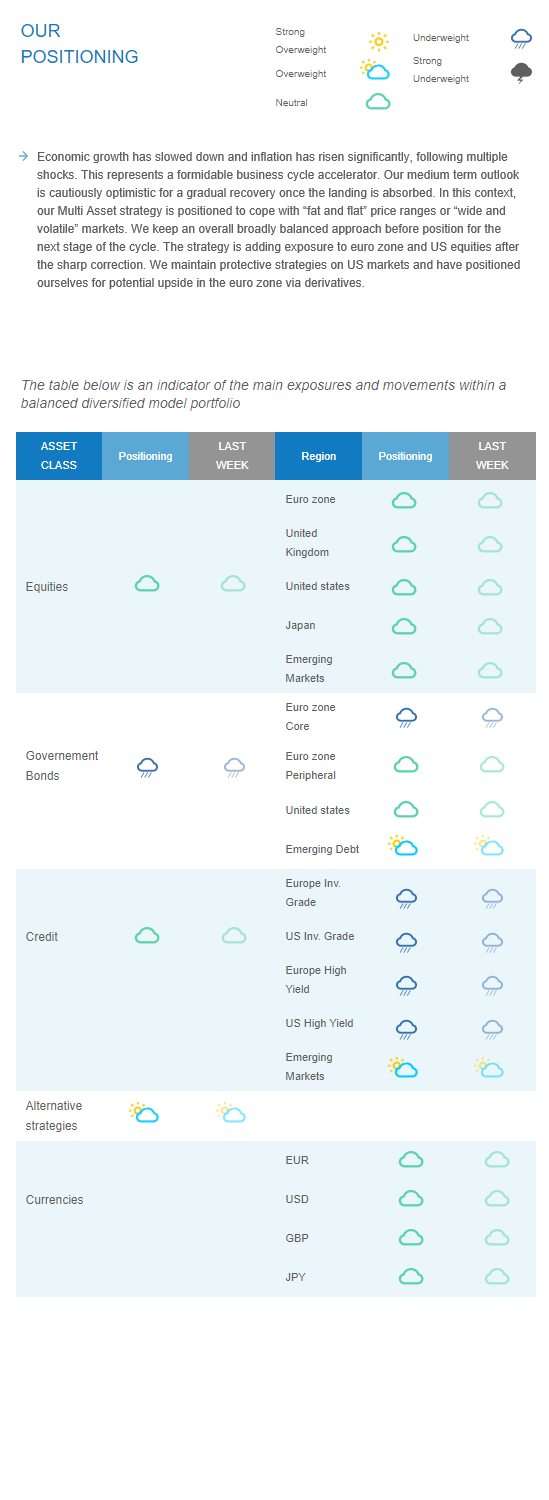Last week in a nutshell
- The EUR got a boost as ECB president Christine Lagarde said that she expected a rate lift-off at the ECB meeting on July 21st, followed by another hike on September 8th, in order to exit negative interest rates by the end of the third quarter.
- Business confidence surveys revealed that growth deceleration continued in May. Softening demand for goods is likely helping to ease strains on delivery times and inflationary pressures. Stocks rose, with European shares heading for the best weekly advance since mid-March.
- In the US, the decline in new and pending home sales accelerated sharply in April. Clearly, higher mortgage rates and declining affordability are weighing on building activity and sales, leading to rising inventories.
- The UK government, under political pressure to support Britons facing a major squeeze on living standards, announced that it will impose a 25% windfall tax on oil and gas companies applied to profits generated in the UK. This raises the question if other countries would follow or if other sectors could get targeted.
What’s next?
- The upcoming US job report will be the next important milestone for investors: Fed funds rate hike expectations have been trimmed in recent weeks and the USD slid almost 3% from its mid-May peak.
- The manufacturing and services PMIs around the globe will reveal important details on the overall softening outlook for growth. Production, new orders, and delivery times will be particularly scrutinised.
- Financial markets will be focused on the May CPI releases in Germany, France, Italy and the euro zone after repricing the expected rate hikes by the ECB in recent weeks. Attention will be paid to whether there have been any signs of relief in price pressures.
- The Bank of Canada's monetary policy decision will be due, following a +50bp move at the last meeting in April

